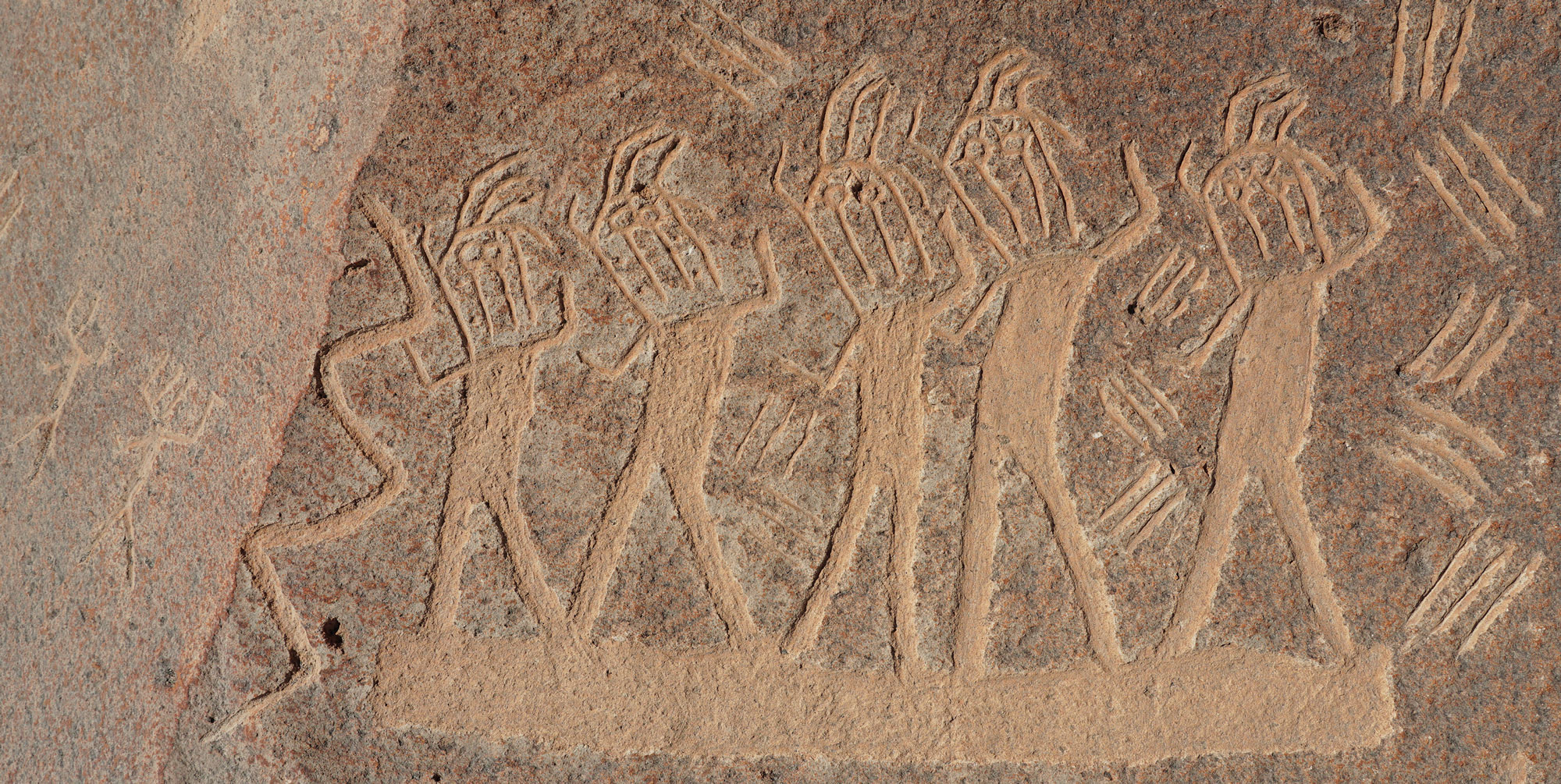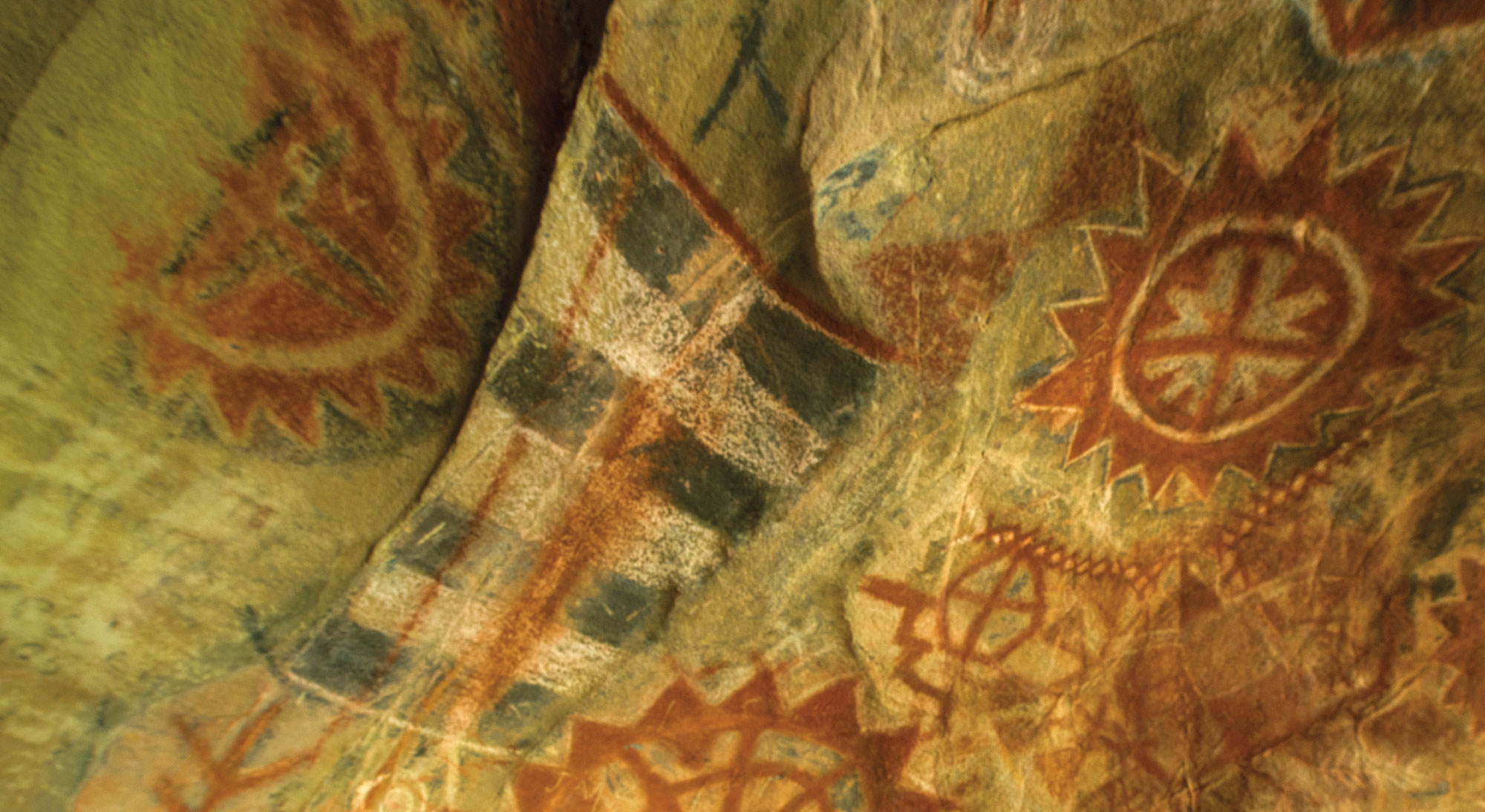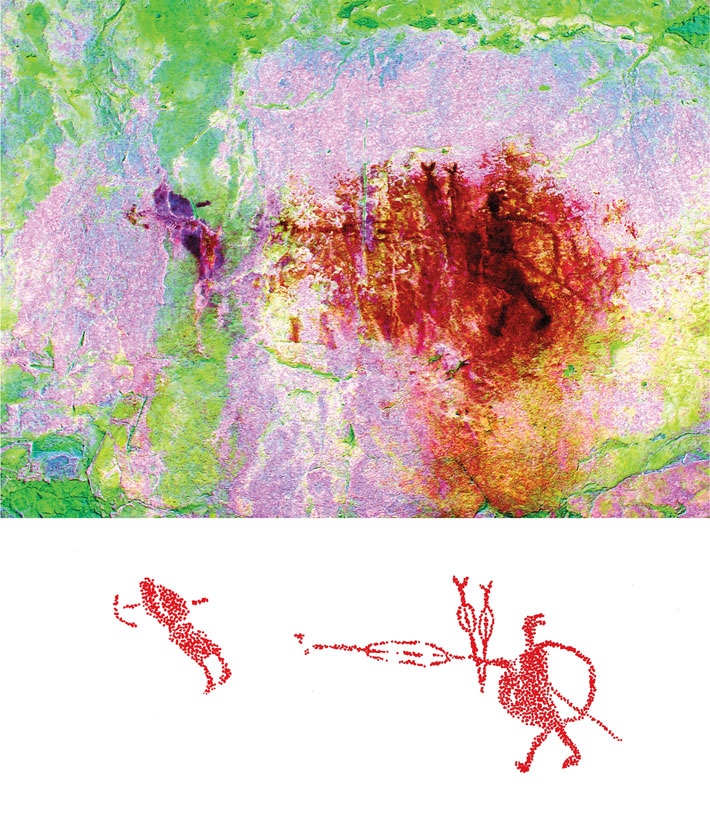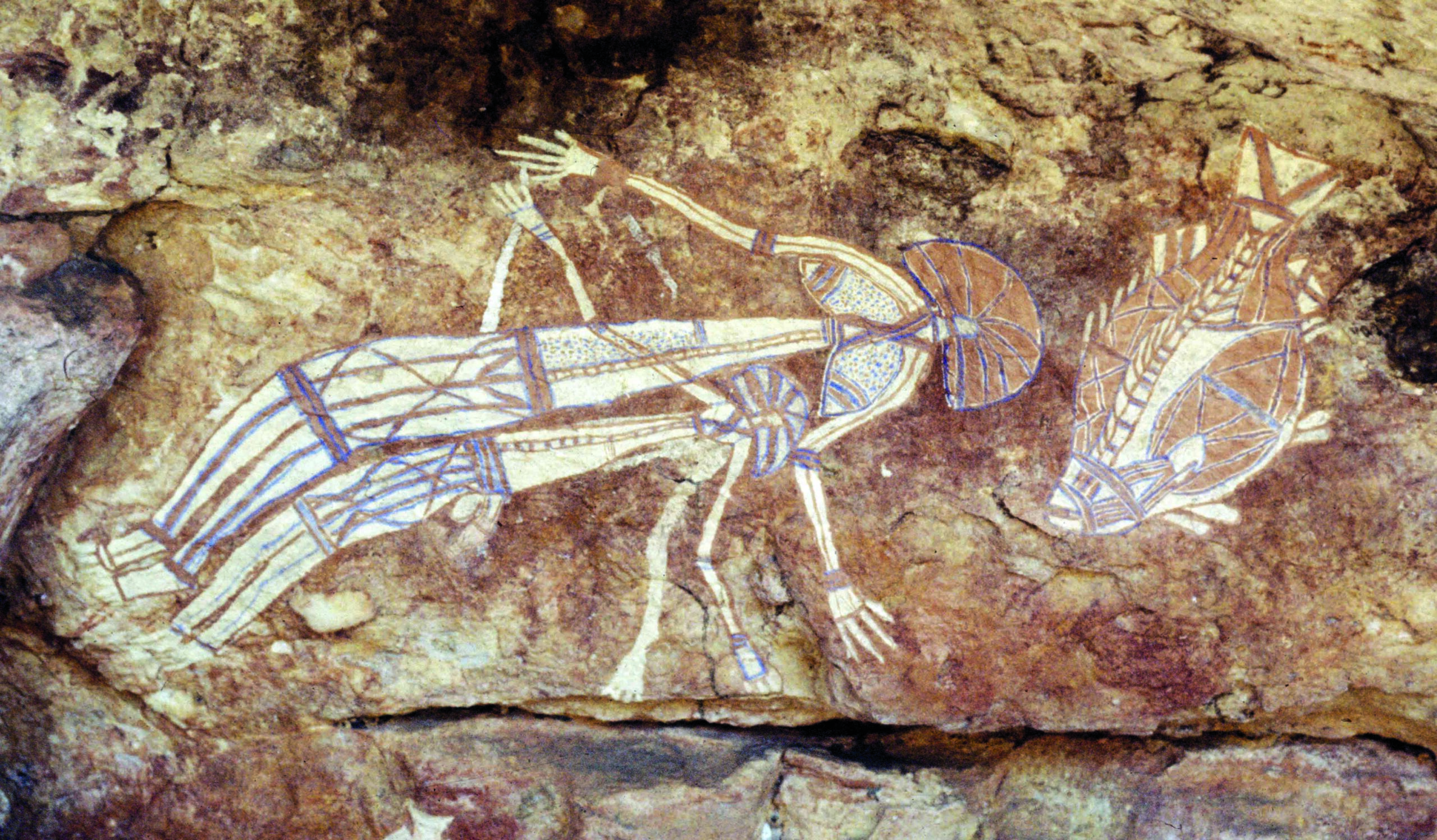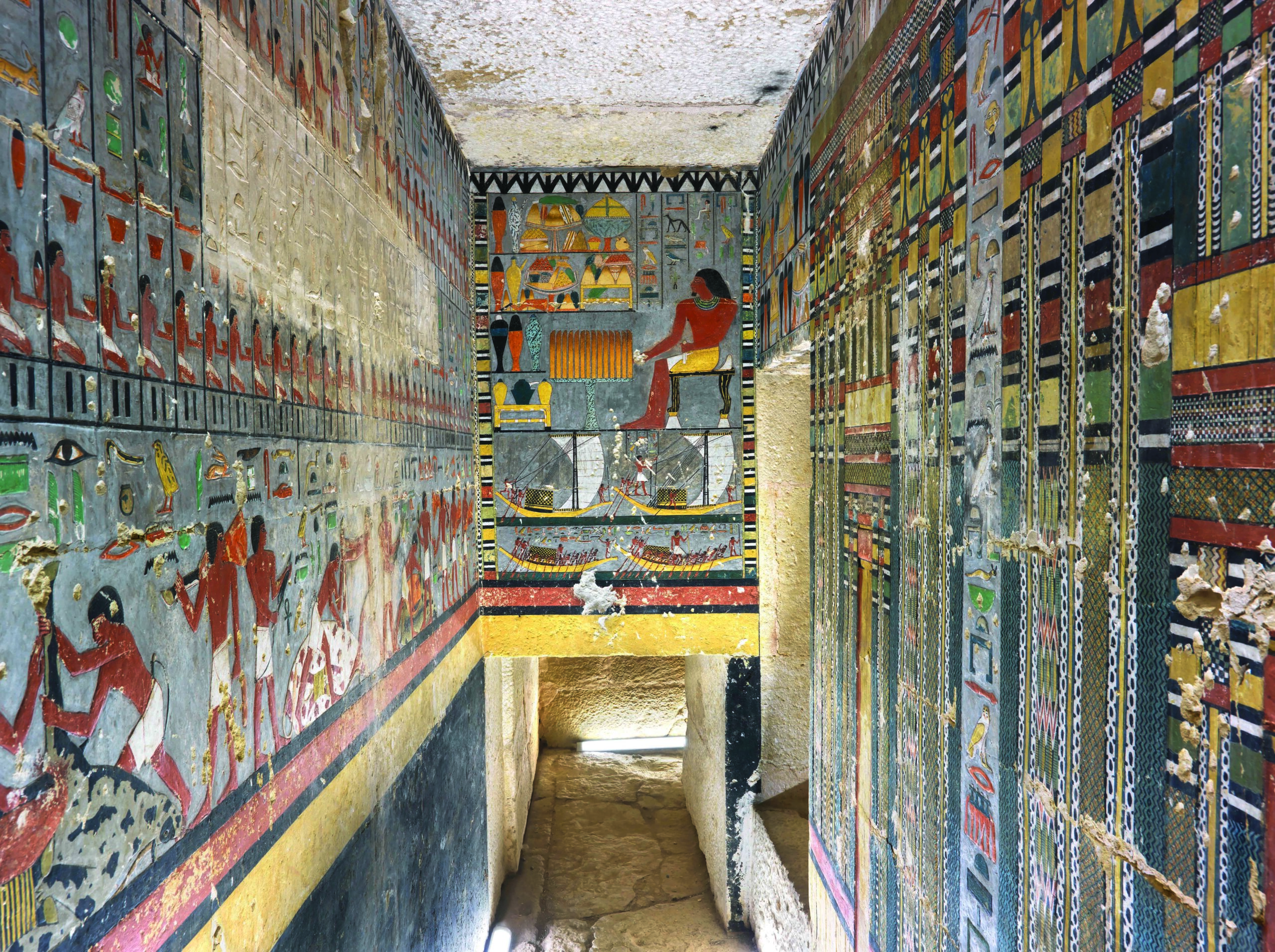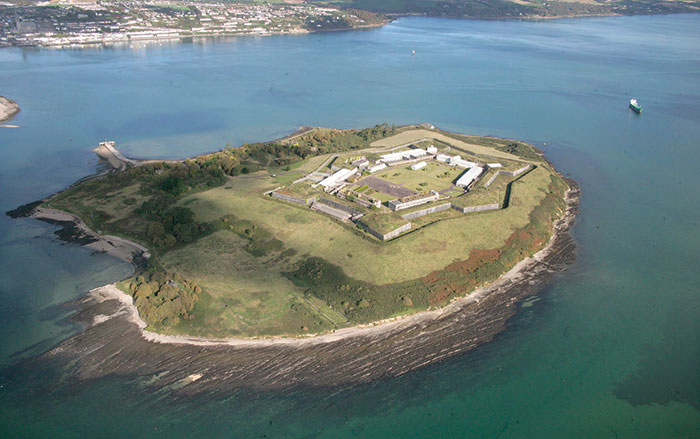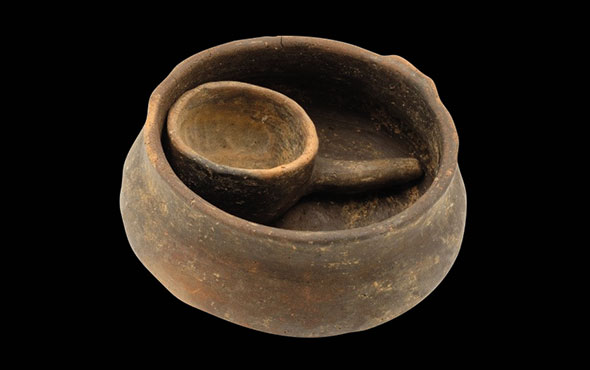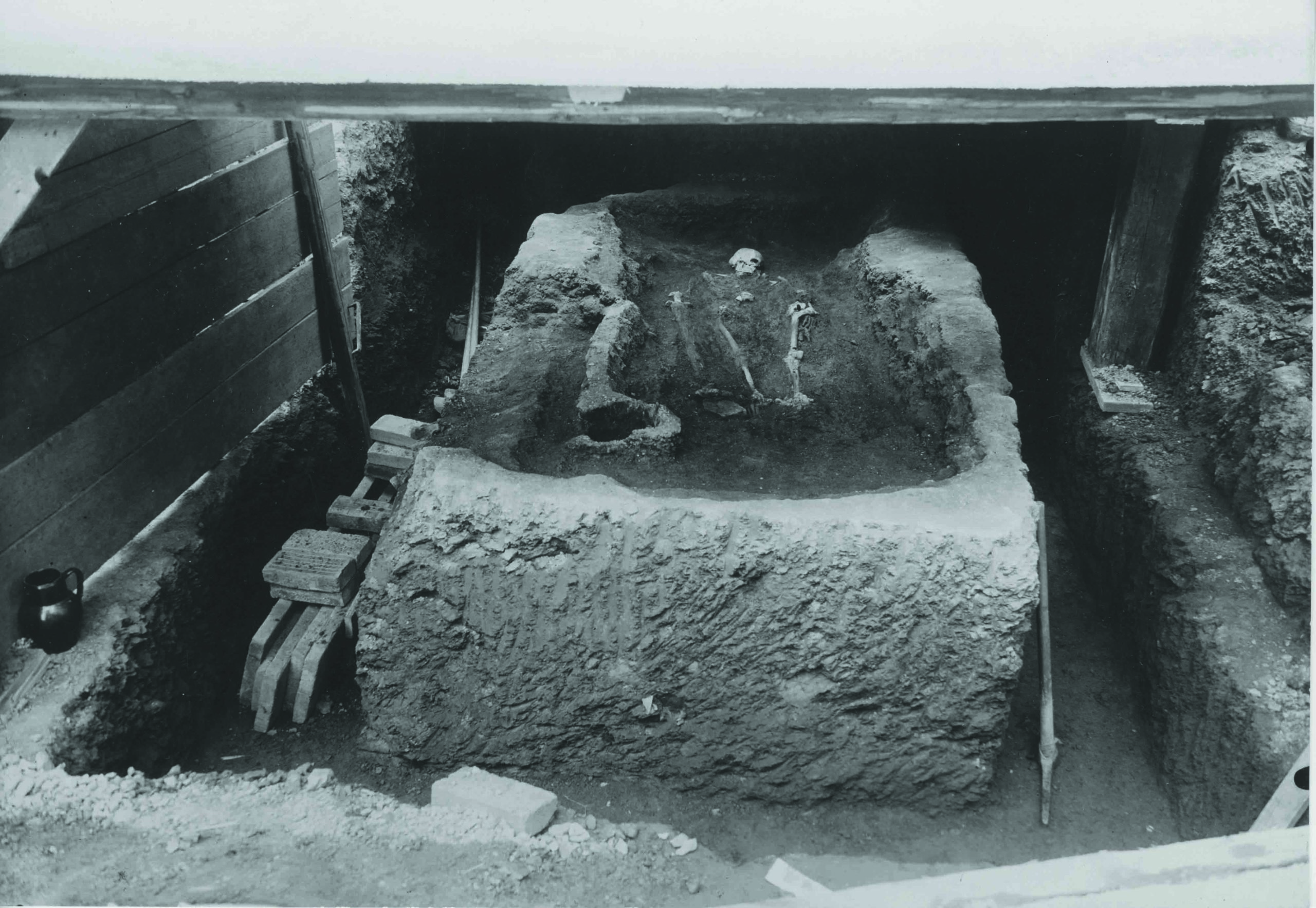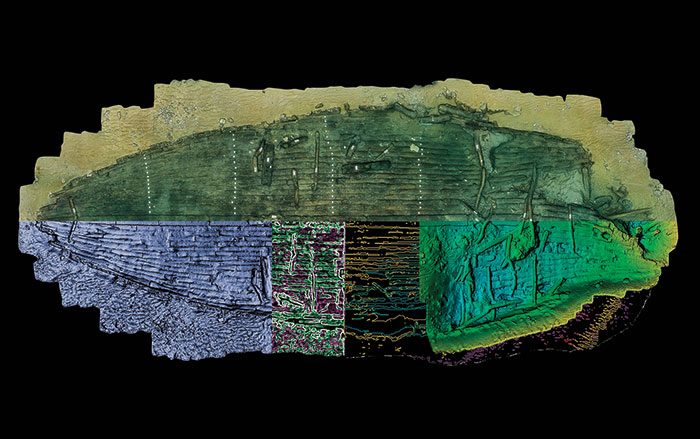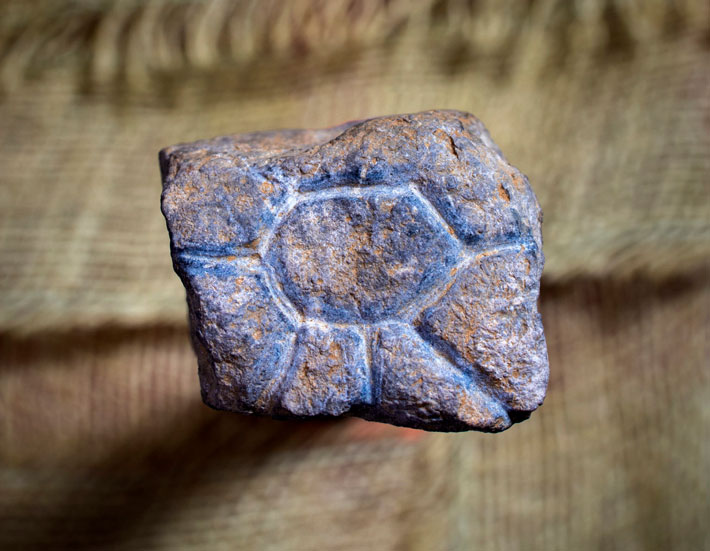
BRISBANE, AUSTRALIA—According to a report in Cosmos Magazine, researchers led by archaeologists Michelle Langley and Adam Brumm of Griffith University have discovered two small carved stones in Leang Bulu Bettue Cave in central Indonesia. One of the stones is etched with an image identified as an anoa, a dwarf buffalo unique to the region. Prehistoric peoples are known to have hunted anoa for food and to have used its bones and horns for making tools. The other stone is carved with an image thought to resemble a sunburst, or an eye surrounded by lashes. The two figurative artworks, thought to date to between 14,000 and 26,000 years ago, may have been carried from place to place by the artists, but the researchers do not know why they were made or how they were used. “They were seemingly discarded amidst all the other refuse of day to day domestic life,” Brumm said. Burnt animal bones, beads, and ochre have also been recovered from the cave. To read about early cave art found in Sulawesi, Indonesia, go to "The First Artists," one of ARCHAEOLOGY's Top 10 Discoveries of 2015.


